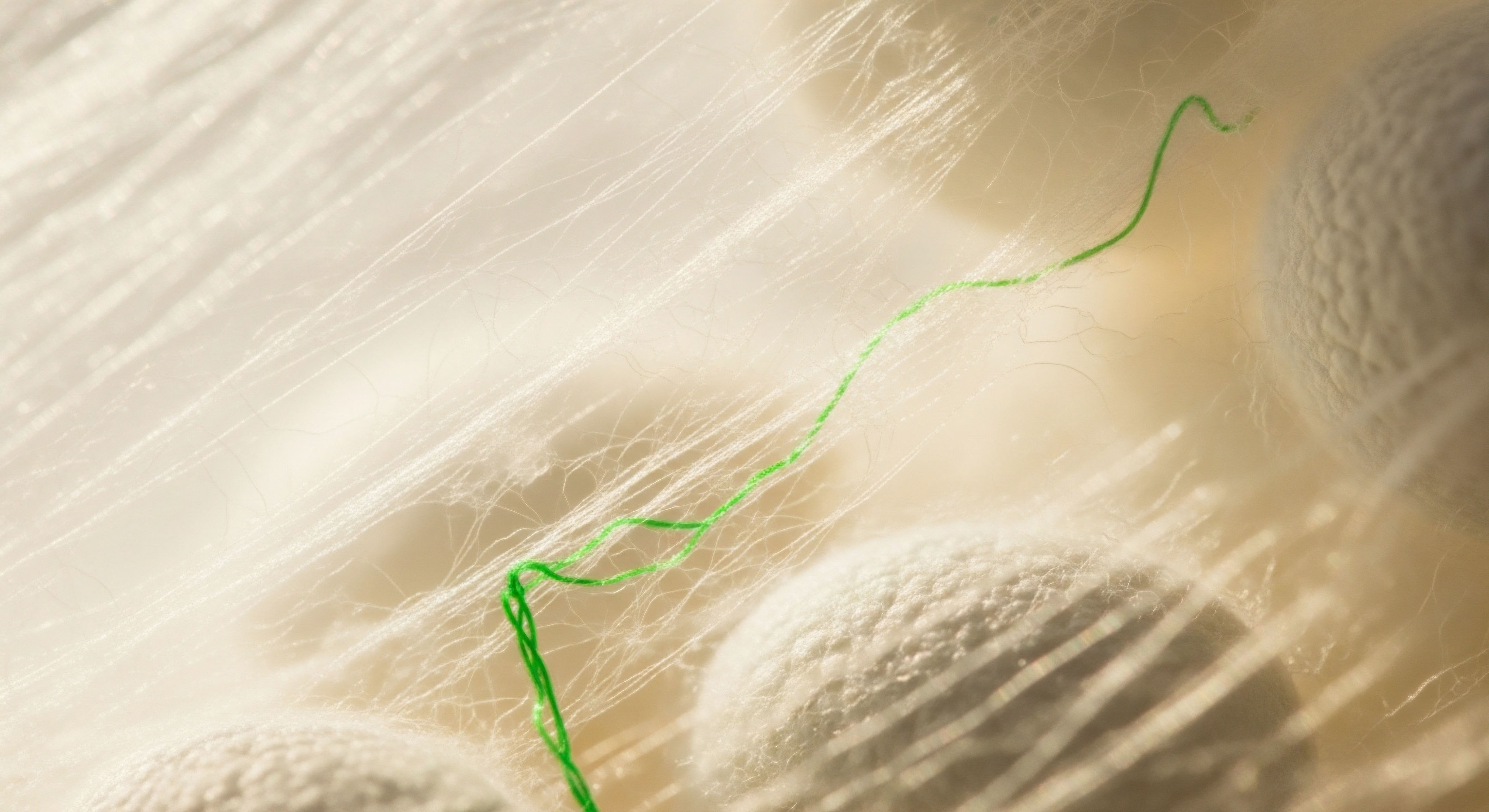

The Nocturnal Architect of Your Prime
There is a silent, powerful force at work while you are unconscious. Every night, a complex biological calibration determines the speed at which you age. This is not about the number of candles on your cake; it is about the vitality coded into your very cells.
You can feel it in your drive, see it in the mirror, and sense it in your mental clarity. When this nightly recalibration is disrupted, your performance declines, your energy dissipates, and a subtle yet persistent fog clouds your ambition.
The conventional view of aging is a passive acceptance of decline. We are told to expect less of ourselves as years pass. This is a profound error in thinking. The signals your body sends ∞ fatigue, decreased strength, a loss of mental sharpness ∞ are not inevitable symptoms of aging.
They are data points indicating a system in need of optimization. The process that governs your biological age is most active during sleep, a time of restoration and repair. Chronic sleep disturbances accelerate biological aging, making you older than your chronological years suggest.
The quality of your sleep is a direct predictor of your biological age and long-term health.
This nightly process is your body’s most critical performance review. It is when cellular damage is repaired, hormonal systems are balanced, and pathways for longevity are cleared. Disrupting this period with poor sleep habits is akin to sabotaging the maintenance crew of a high-performance engine. The result is accelerated wear and tear, leading to a state where your biological age outpaces your calendar age. Understanding this connection is the first step toward taking control of the aging process itself.


Recalibrating Your Cellular Clock
Your biological age is dynamically written and rewritten each night through a series of interconnected biological processes. Think of your body as a sophisticated system with a central clock that is reset during sleep. This reset is not a single event, but a cascade of molecular and cellular activities that determine your vitality. The quality and duration of your sleep directly influence these mechanisms, which in turn dictate how quickly your body ages.
One of the most critical processes is the maintenance of telomeres, the protective caps at the ends of your chromosomes. Shorter telomeres are a hallmark of accelerated aging. Studies have shown that individuals who consistently get less than seven hours of sleep have significantly shorter telomeres than those who get adequate rest.
This nightly shortening of telomeres is a tangible measure of how sleep deprivation advances your biological age. Furthermore, poor sleep quality increases inflammation, a key driver of age-related diseases, and disrupts the expression of genes responsible for DNA repair.

The Four Pillars of Nocturnal Age Regulation
- Telomere Integrity ∞ Quality sleep protects the length of your telomeres, the biomarkers of cellular longevity.
- DNA Repair ∞ The body’s mechanisms for repairing genetic damage are most active during sleep, mitigating the daily wear and tear on your cells.
- Inflammation Control ∞ Restorative sleep helps regulate inflammatory responses, preventing the chronic inflammation that accelerates aging.
- Hormonal Balance ∞ Sleep is critical for balancing key hormones that govern metabolism, stress, and growth, all of which influence the aging process.
Fragmented and insufficient sleep actively damages the cellular processes that keep you young.
The concept of “sleep age” has emerged from research showing that the quality of your sleep can predict your long-term health and mortality. By analyzing sleep patterns, researchers can project a biological age that reflects your body’s overall health. A person with disrupted sleep may have a sleep age significantly older than their chronological age, indicating a higher risk for age-related health issues. This underscores the direct and measurable impact of sleep on your biological clock.


Mastering Your Nightly Rejuvenation
The time to intervene in your biological aging process is now. The nightly recalibration of your cellular clock is an ongoing process, meaning that improvements in your sleep habits can yield immediate and long-term benefits. You will notice the initial effects of optimized sleep within weeks, manifesting as increased energy, improved mental clarity, and enhanced physical performance. These are the first signals that your body is moving from a state of accelerated aging to one of rejuvenation.
A proactive approach to sleep optimization is a direct investment in your long-term vitality. The moment you begin to prioritize restorative sleep, you are taking a definitive step toward slowing, and potentially even reversing, the biological aging process.
This is not about adding more hours to your day; it is about enhancing the quality of your life by improving the quality of your nights. The benefits extend beyond feeling rested; they are about fundamentally altering your health trajectory at a cellular level.

The Path to a Younger Biological Age
The journey to a younger biological age begins with a commitment to consistent, high-quality sleep. This involves creating a sleep-conducive environment, establishing a regular sleep schedule, and adopting habits that promote relaxation and deep rest. Reducing exposure to blue light before bed, for example, protects the production of melatonin, a hormone essential for deep sleep. Incorporating short naps can also provide restorative benefits without interfering with nighttime sleep.
The connection between sleep and biological age is undeniable. By taking deliberate steps to improve your sleep hygiene, you are activating your body’s innate anti-aging mechanisms. This is not a passive process; it is an active strategy for optimizing your health and performance. The payoff is a life lived with greater vitality, resilience, and a biological age that reflects your commitment to proactive wellness.

Your Future Is Decided in the Dark
The conversation around aging is shifting from passive acceptance to proactive optimization. Your body is a system that can be tuned and upgraded. The knowledge that your biological age is determined at night provides you with a powerful lever for change. The question is no longer whether you can influence the aging process, but how you will choose to architect your own vitality.

Glossary

vitality

most active during sleep

biological age

aging process

dna repair

inflammation control

restorative sleep

hormonal balance

sleep optimization

proactive wellness




